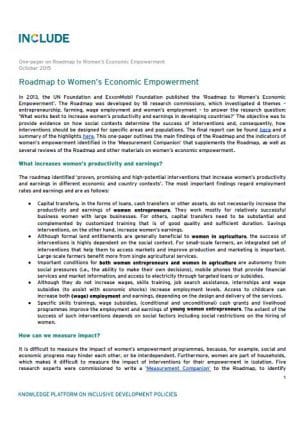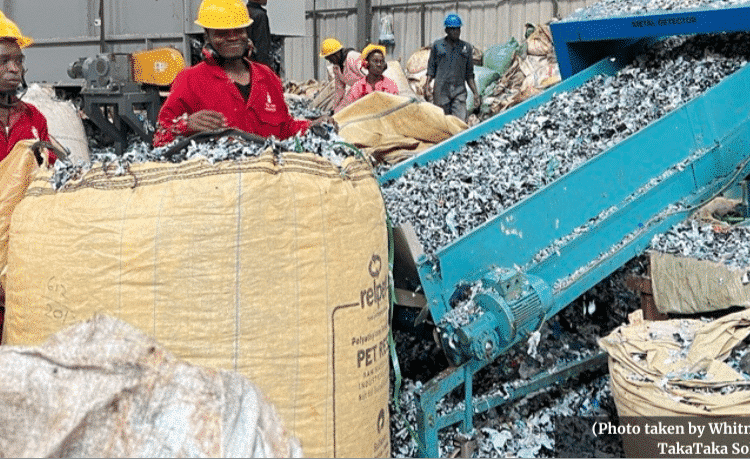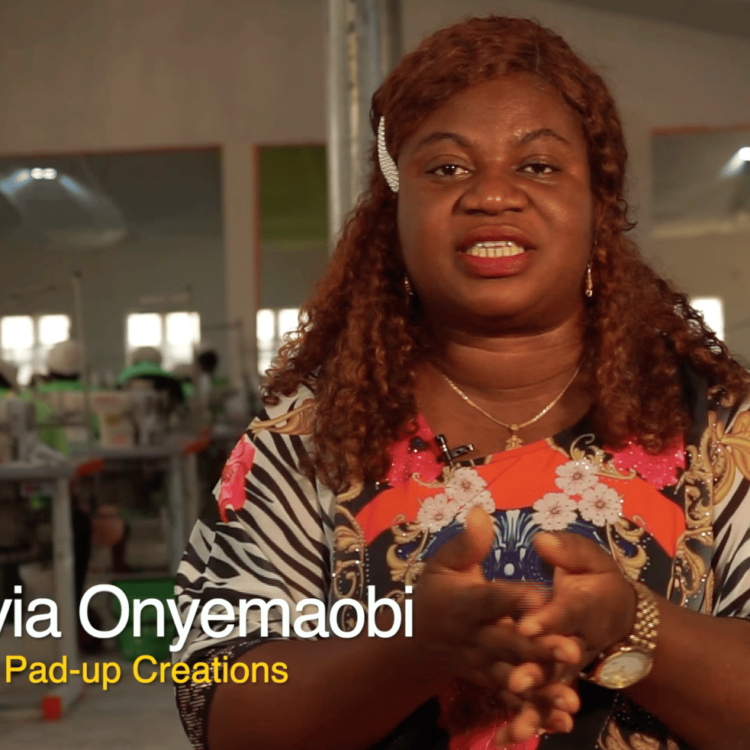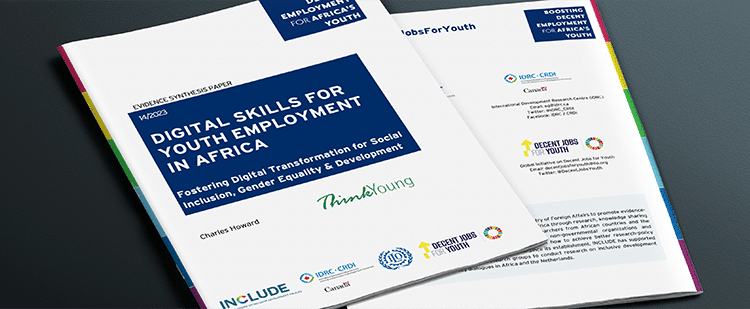
In 2013, the UN Foundation and ExxonMobil Foundation published the ‘Roadmap to Women’s Economic Empowerment’. The Roadmap was developed by 18 research commissions, which investigated 4 themes – entrepreneurship, farming, wage employment and women’s employment – to answer the research question: ‘What works best to increase women’s productivity and earnings in developing countries?’ The objective was to provide evidence on how social contexts determine the success of interventions and, consequently, how interventions should be designed for specific areas and populations.
This two-pager outlines the main findings of the Roadmap and the indicators of women’s empowerment identified in the ‘Measurement Companion’ that supplements the Roadmap, as well as several reviews of the Roadmap and other materials on women’s economic empowerment.




